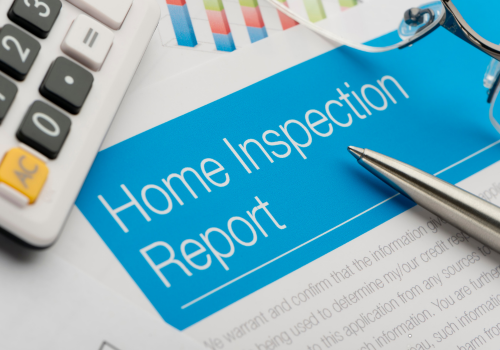
Quick insights
- Home appraisals are generally necessary for determining a property’s market value.
- The process involves a thorough evaluation of the home’s size, condition, location and recent comparable sales.
- There are various types of house appraisals, including full appraisals, drive-by appraisals and online home appraisals.

A home appraisal is used to determine the estimated value of a home. The process may seem mysterious, so we’re here to help. We’ll dive into many important aspects of home appraisals and how the process works, so you know more of what to expect.

What is a home appraisal?
A home appraisal is an evaluation conducted by a qualified, professional appraiser to determine how much your property is worth. The process accounts for a home’s condition, location, comparable properties in the area and current market trends. This process helps ensure that both homebuyer and loan provider understand the property’s worth. Lenders generally require a home appraisal to understand the estimated market value and before finalizing your mortgage.
How do home appraisals work?
Home appraisals involve a licensed appraiser evaluating a property to determine its market value. Here’s a quick overview of the process:

Order:
The loan provider orders the appraisal after a purchase agreement is signed.

Inspection:
The appraiser inspects the property, noting its condition, size and features.

Market analysis:
They research recent sales of similar homes in the area to assess value.

Report:
The appraiser prepares a report detailing the estimated value and any notable conditions.

Review:
The lender uses the appraisal to decide if the loan amount aligns with the property’s value.

Home appraisals when buying and selling
Home appraisals are requested by the lender, and the homebuyer receives a copy of the appraisal. If the appraised value matches the agreed purchase price, the transaction is rather straightforward. If the appraised value comes back below the agreed purchase price, then the buyer may want to reevaluate.
If an appraisal that comes in lower than expected, the seller might lower the asking price, or the buyer could have to pay the difference. From the seller’s point of view, there could be recent foreclosures or other market events that affect the value of their home. Ultimately, the buyer may be able to negotiate a lower price with the seller, request a reconsideration of value or walk away from the sale.

Home appraisals when refinancing
If you’re refinancing a home, your lender may require an appraisal. If the appraised value is below what is expected, they may deny your application. With mortgage types like FHA or VA loans, you may be able to refinance Footnote1Opens overlay without a home appraisal. Just like with a purchase, you can request a reconsideration of value if the appraised value comes in lower than expected.
FHA (Federal Housing Administration) loan appraisals are designed to ensure that the property meets certain safety and livability standards. FHA appraisals are more stringent than standard appraisals, focusing on issues that could affect the home’s habitability. VA (Veterans Affairs) loan appraisals serve a similar purpose, ensuring that the property is suitable for occupancy and meets specific minimum property requirements. VA loan appraisals may allow for some flexibility in repairs compared to FHA appraisals.
Cost of home appraisals
A home appraisal cost depends on the location, property size and complexity of the appraisal. Larger or unique properties may incur higher appraisal fees. Generally, the homebuyer pays for the appraisal upfront, although this amount is often included in the closing costs of the mortgage. As of December 2024, the median cost of an appraisal is $450-700, Opens overlay. Footnote2Opens overlay

What do home appraisers look for?
In short, the appraiser will take a comprehensive, holistic approach to determining your home's estimated value.
There are many factors that affect the value of a home. Some items an appraiser will likely review include:

The overall condition

Location

Size of the home

Safety features

Plumbing and electrical systems

Home updates

Nearby sales

Any damages

Material the home is made of

Indoor and outdoor amenities

Real Estate Comps

Information about recently sold homes in the area/neighborhood

Square footage

Rental income or fees

Seasonal conditions
Once the appraisal is complete, you’ll hopefully move on to closing on your home or getting the greenlight from your lender for a purchase or refinance. Getting a home appraisal is a pivotal part of the journey and helps get homebuyers closer to their goal.
Reasons for a house appraisal
Home appraisals are essential in various situations, with the purpose of establishing the fair market value of a property.
Here are some key scenarios when a home appraisal will likely be needed:

Buying a home:
Lenders require an appraisal to ensure the home’s value supports the loan amount. This protects both the loan provider and the homebuyer from overpaying.

Selling a home:
Sellers may seek an appraisal to set a competitive price based on the property’s current market value, helping to attract potential buyers.

Refinancing a mortgage:
When refinancing, loan providers typically require an appraisal to confirm the home’s value and assess the risk involved in the new loan.

Donating property:
If you’re donating a property to a charitable organization, an appraisal is needed to determine its fair market value for tax deduction purposes.

Estate planning:
In estate planning, appraisals help establish the value of a property for distribution among heirs, ensuring a fair division of assets.

Dividing your assets:
During divorce or asset division, an appraisal provides a clear value for the home, facilitating equitable distribution between parties.
In most situations, a home appraisal is vital to get accurate valuation, protecting financial interests and complying with legal requirements.
Types of house appraisals
When it comes to home appraisals, there are several types to consider:

Full home appraisal:
This comprehensive evaluation involves an on-site inspection by a licensed appraiser, assessing the property’s condition and analyzing comparable sales. It's typically required for mortgage financing.

Drive-by/summary appraisal:
A drive-by appraisal is when an appraiser assesses the property from the street without entering. This is a quicker and less expensive option that may be suitable for simpler situations, like some refinancing cases.

Hybrid appraisal:
This method includes a brief on-site inspection by a local appraiser, followed by a detailed analysis from another appraiser. It balances thoroughness with efficiency.

Online home appraisal:
Also known as a desktop appraisal, this method relies on data analysis without a physical inspection. The appraiser uses public records and market information to estimate the value, making it cost-effective and quick but potentially less accurate.
Home appraisal vs. home inspection
While both home appraisals and home inspections are key in the real estate process, they serve different purposes and assess different aspects of a property.

Home appraisal
- Purpose: Determines the market value of a property.
- Conducted by: A licensed appraiser.
- Focuses on: Property size and condition, location and recent comparable sales.
- Goal: Ensure the property’s value aligns with the loan amount for buyers or refinancing.

Home inspection
- Purpose: Evaluates the overall condition of the property.
- Conducted by: A certified home inspector.
- Focuses on: Structural integrity, electrical and plumbing systems, safety issues and repairs needed.
- Goal: Help homebuyers understand any potential issues before completing the purchase.
In summary
Home appraisals play a critical role in the real estate process by determining a property’s market value. They ensure that buyers are not overpaying for a property and help loan providers assess the risk of financing. Understanding the different types of appraisals and their purposes is important for anyone involved in buying, selling or refinancing a home. Ultimately, a thorough appraisal can provide clarity and confidence in real estate transactions.

Home appraisal FAQs
If you have questions about home appraisals, here are some common inquiries and their answers to help clarify the process.

